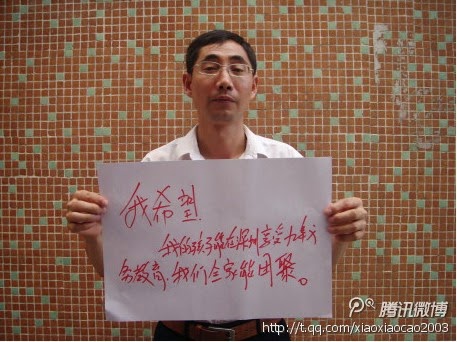Wu Guijun 吴贵军
Comments Off on Wu Guijun 吴贵军
Wu Guijun 吴贵军
(released)

Criminal charge: Gathering a crowd to disrupt social order
Length of Punishment: Three years, suspended for four years
Court: Shenzhen Bao’an District Court
Trial Date: Unknown
Sentencing Date: Unknown
Dates of Detention/Arrest: January 20, 2019 (detention); February 26, 2019 (formal arrest); April 22, 2020 (released)
Place of Incarceration: Bao’an District Detention Center (Shenzhen, Guangdong Province)
Background
Police detained labor rights activist Wu Guijun in Guangdong on January 20, 2019 as part of a coordinated action that day targeting four other individuals who work with labor rights NGOs or advocate for labor rights. The detention of the five labor activists was part of an escalation of the Chinese government’s repression of such activists, particularly in Guangdong, where workers’ movements in China’s industrial hub have become increasingly “politically-sensitive,” in particular after a strike and subsequent crackdown on workers and their supporters at a Shenzhen-based Jasic Technology factory. The detainees were not known to have been involved in that incident.
The others seized the same day as Wu were Zhang Zhiru (张治儒), a leading labor activist and the director of Shenzhen Chunfeng Labour Dispute Service Center and two former staff members, Jian Hui (简辉) and Song Jiahui (宋佳慧), and also He Yuancheng (何远程), a one-time legal assistant at Guangdong Workers Protection Law Firm (广东劳维律师事务所). Four of the men were detained in Guangdong, while Jian was taken into custody in Hunan Province. Song Jiahui previously had worked at the Lide Shoe factory in Guangzhou, where he led co-workers as the elected labor representative in a successful collective bargaining case in 2015. He Yuancheng had trained workers on their legal rights while working at the law firm and later edited Collective Bargaining Forum (中国集体谈判论坛). Though the timing of the detentions and the crime specified (“gathering a crowd to disrupt social order”) appeared to be coordinated, it is still unclear if the cases of all five are related. Three of the detentions appear to be tied to the Chenfeng center, but He Yuancheng has been questioned by police about a 2014 collective action. Jian, who has been granted two visits with his lawyer, has been interrogated about the Chenfeng center, including its funding sources, and Zhang Zhiru’s role. Prosecutors sent Jian Hui’s case back for further investigation on July 3, 2019. All five were held at at Bao’an District Detention Center in Shenzhen.
Wu Guijun’s wife reportedly received a criminal detention notice from police on January 21, 2019, which stated that he was held on suspicion of “gathering a crowd to disrupt social order.” Police formally arrested Wu on February 26. Between February 26-27, 2019, police informed the families of Wu, Zhang, and He that they had been formally arrested on suspicion of the same criminal charge, and it is believed that Jian and Song also were arrested for the same offense at that time. In March, authorities denied Wu Guijun’s lawyer a visit with him, but he has been granted at least two meetings as of late July.
On May 7, 2020, all five labor defenders returned home following a secret trial and conviction which their families were not given any notification about. Wu and Zhang Zhiru received three-year prison sentences, suspended for four years. Jian Hui, Song Jiahui and He Yuancheng receieved 18-month sentences, suspended for two years. Authorities released the five activists on April 22 but forced them into a 14-day quarantine upon their release, which they did not notify the families of, and the five did not return home until May 7.
Born June 7, 1972 in Changde City, Hunan Province, Wu Guijin formerly worked at Shenzhen Diweixin Product Company, a Hong Kong-owned furniture manufacturer, beginning in 2004. He got involved in rights-defense issues in his factory in 2006, the same year that he suffered an injury on the job. Wu emerged prominently as an activist in 2013, when he organized Diweixin workers to go on strike against the company’s refusal to offer fair compensation as the company was preparing to close the factory and relocate to the city of Huizhou. In apparent retaliation for helping with legal consultations and negotiating with Diweixin’s management, Wu was seized in May 2013 for “gathering a crowd to disrupt traffic order.” Hearings were held four times in Wu’s case, between February and May 2014, and were heavily protested by his supporters. His trial ultimately ended without a verdict being issued, and Wu was released on bail in May 2014. From that time he became an independent activist, helping factory workers in Shenzhen fight for social insurance and other labor entitlements.
Further Information
China Must Release Detained Labor Rights Advocates, July 25, 2019, CHRD
